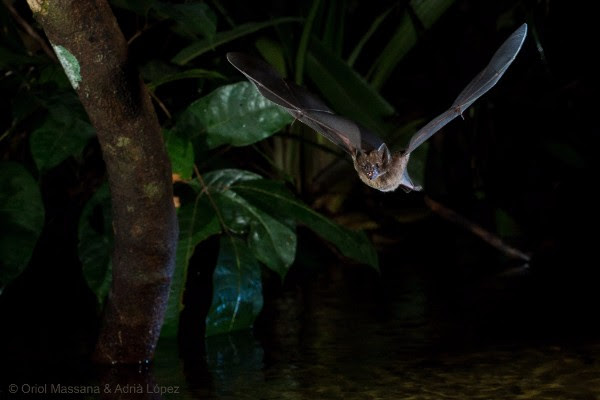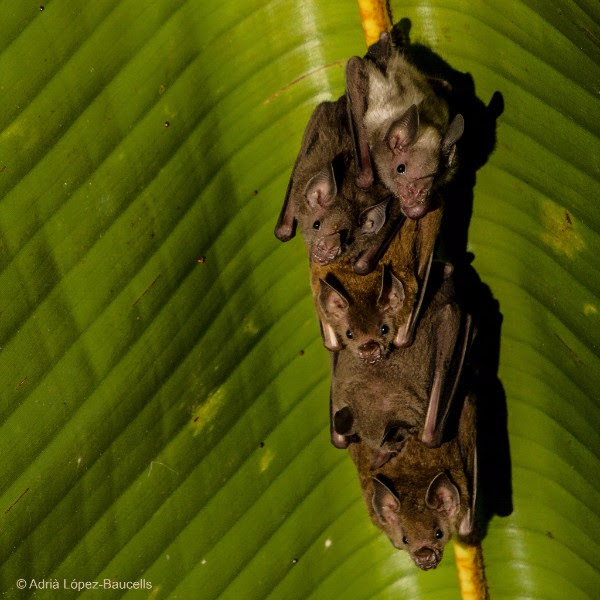
A new study shows that, for bats, sex matters: males and females respond differently to the fragmentation and degradation of their habitats, one of the most serious threats to biodiversity. It is the first study of its kind carried out with bats, and its conclusions will allow the development of more specific and effective conservation plans.
Tropical forests are among the most threatened ecosystems in the world. Pressure caused by human activities such as agriculture or industry causes degradation and fragmentation of their habitats.
Bats play a key role in maintaining these ecosystems by dispersing seeds, pollinating plants and reducing populations of the various species of invertebrates on which they feed. Although several studies have addressed the impact on bats of fragmentation and degradation of their habitats, none had investigated their sex-specific responses. So far.
This study, published in the journal Biotropica, used as a starting point more than 2000 catches of two of the most common bat species in the Amazon, Carollia Perspicillata e rhinophylla pumilium.

“The females of the two species we studied have their period of greatest reproductive activity during the dry season. If females are pregnant or nursing, how they respond to the different types of vegetation that exist in the landscape and available to them – which we measure through what we call the metrics of habitat composition and configuration – will be different. This is because females will be more dependent on the availability of fruit, or they will not be able to travel as far as males to look for food, for example”, explains Diogo Ferreira, one of the study coordinators, a researcher at the cE3c – Center for Ecology, Evolution and Environmental Change (Faculty of Sciences, University of Lisbon) and the Biological Dynamics of Forest Fragments Project. This study thus suggests a further level of complexity in the way tropical bats respond to changes of this scale in their habitats.
The rate of fragmentation of tropical forests is expected to increase in the coming decades. The ability to conserve tropical forest vertebrates will depend on our understanding of the response of these species to fragmentation.
“In this context, it is important to understand if males and females respond differently. Especially because changes in population structure – such as the ratio between males and females – can contribute to reduce or increase the widespread impacts of forest loss and habitat fragmentation”, concludes Ricardo Rocha, first author of the study and, to date conducting the study, investigator at cE3c.
Currently Ricardo Rocha is a researcher at Cambridge University, UK.
Article reference:
Rocha R, Ferreira DF, López-Baucells A, Farneda FZ, Careers JMB, Palmeirim, J and Meyer C (2017) Does sex matter? Gender-specific responses to forest fragmentation in Neotropical bats. Biotropic. DOI: 10.1111/btp. 12474 http://onlinelibrary.wiley.com/doi/10.1111/btp.12474/abstract
Author CE3c Communication Office – Center for Ecology, Evolution and Environmental Change
Science in the Regional Press – Ciência Viva


















Comments